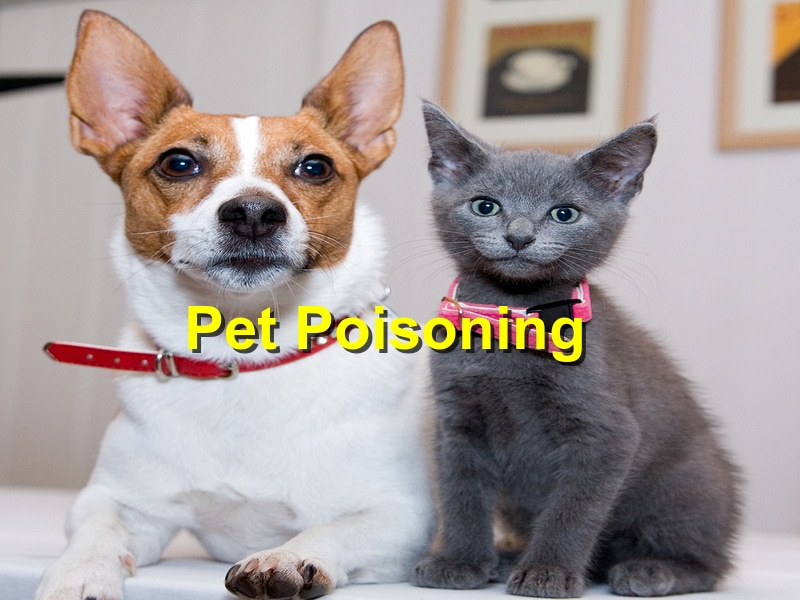Recognizing and Responding to Poisoning in Pets

Recognizing and responding to poisoning in pets is crucial for their safety and well-being. Learn how to identify common signs of poisoning, take preventive measures, and respond effectively in case of emergencies:
- Know the Signs: Be aware of common signs of poisoning in pets, which may include vomiting, diarrhea, drooling, weakness, lethargy, difficulty breathing, seizures, and loss of appetite. Keep an eye out for any unusual behavior or symptoms that could indicate poisoning.
- Identify Potential Poisons: Familiarize yourself with common household items, foods, plants, and chemicals that are toxic to pets. These may include chocolate, grapes, raisins, onions, garlic, xylitol (found in sugar-free gum), certain houseplants (e.g., lilies, azaleas), household cleaners, pesticides, and medications.
- Prevent Accidental Exposure: Take preventive measures to minimize the risk of poisoning in pets. Keep toxic substances securely stored out of reach in cabinets or locked containers. Be cautious when using pesticides or fertilizers in the yard, and avoid using products containing chemicals harmful to pets.
- Act Quickly: If you suspect your pet has ingested a poisonous substance, act quickly to seek help. Contact your veterinarian or an emergency animal hospital immediately for guidance. Provide as much information as possible, including the type and amount of substance ingested, and follow their instructions.
- Do Not Induce Vomiting: In some cases of poisoning, inducing vomiting can do more harm than good. Do not attempt to induce vomiting in your pet unless instructed to do so by a veterinarian. Certain substances, such as corrosive chemicals or sharp objects, can cause further damage if brought back up.
- Seek Veterinary Care: Take your pet to the nearest veterinary facility for evaluation and treatment as soon as possible. Your veterinarian may administer activated charcoal to absorb toxins, provide supportive care such as intravenous fluids or medications, and monitor your pet's condition closely.
- Follow Up: After initial treatment, follow any instructions provided by your veterinarian for monitoring your pet's recovery at home. Attend follow-up appointments as recommended and keep an eye out for any lingering symptoms or complications.
By being vigilant, proactive, and prepared to respond in case of poisoning incidents, you can help protect your pets from harm and ensure their safety and well-being. Stay informed about potential hazards, take preventive measures, and seek prompt veterinary care if poisoning is suspected.
References: MayoClinic, WebMD
https://braseltonervet.com/?p=4069
Comments
Post a Comment